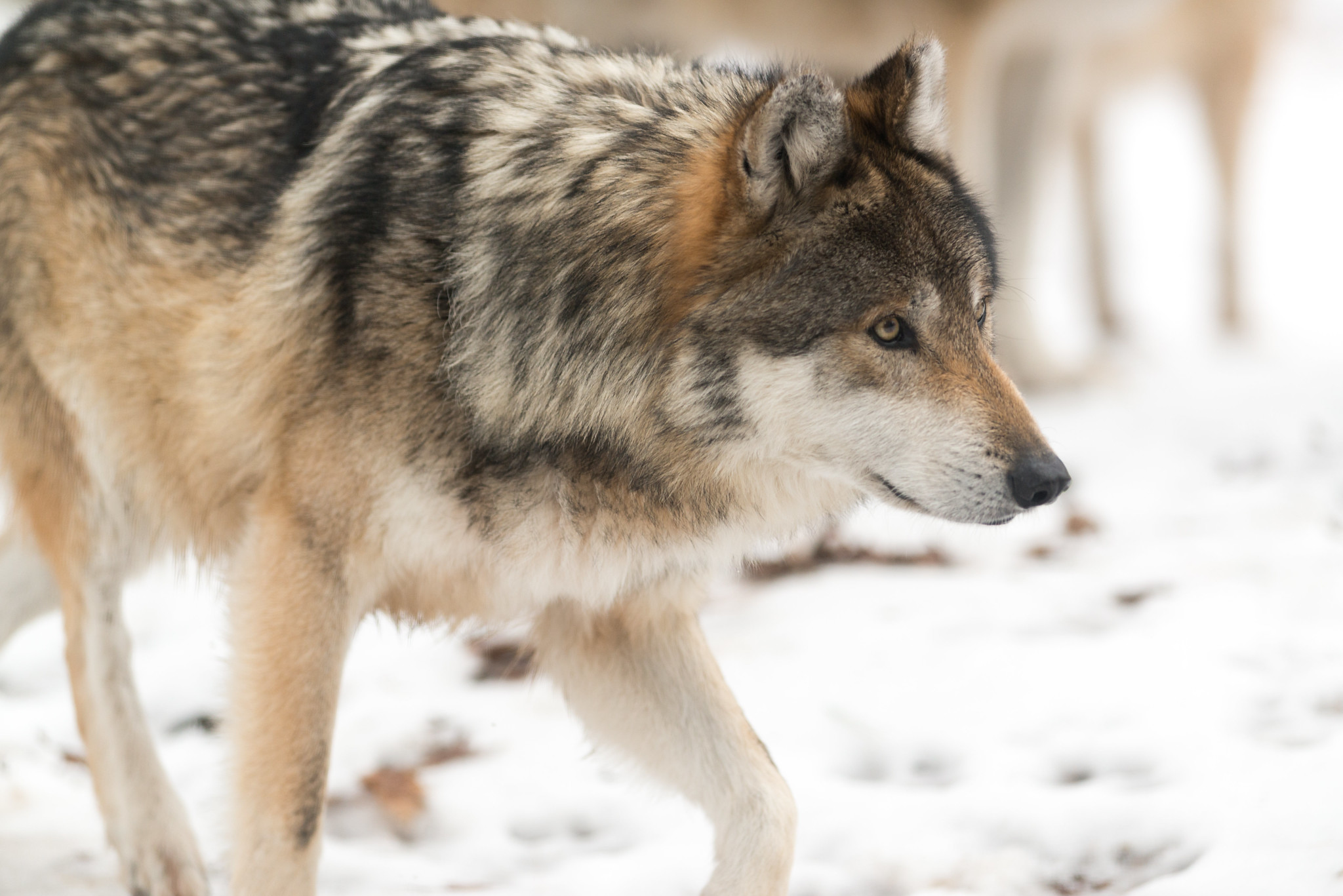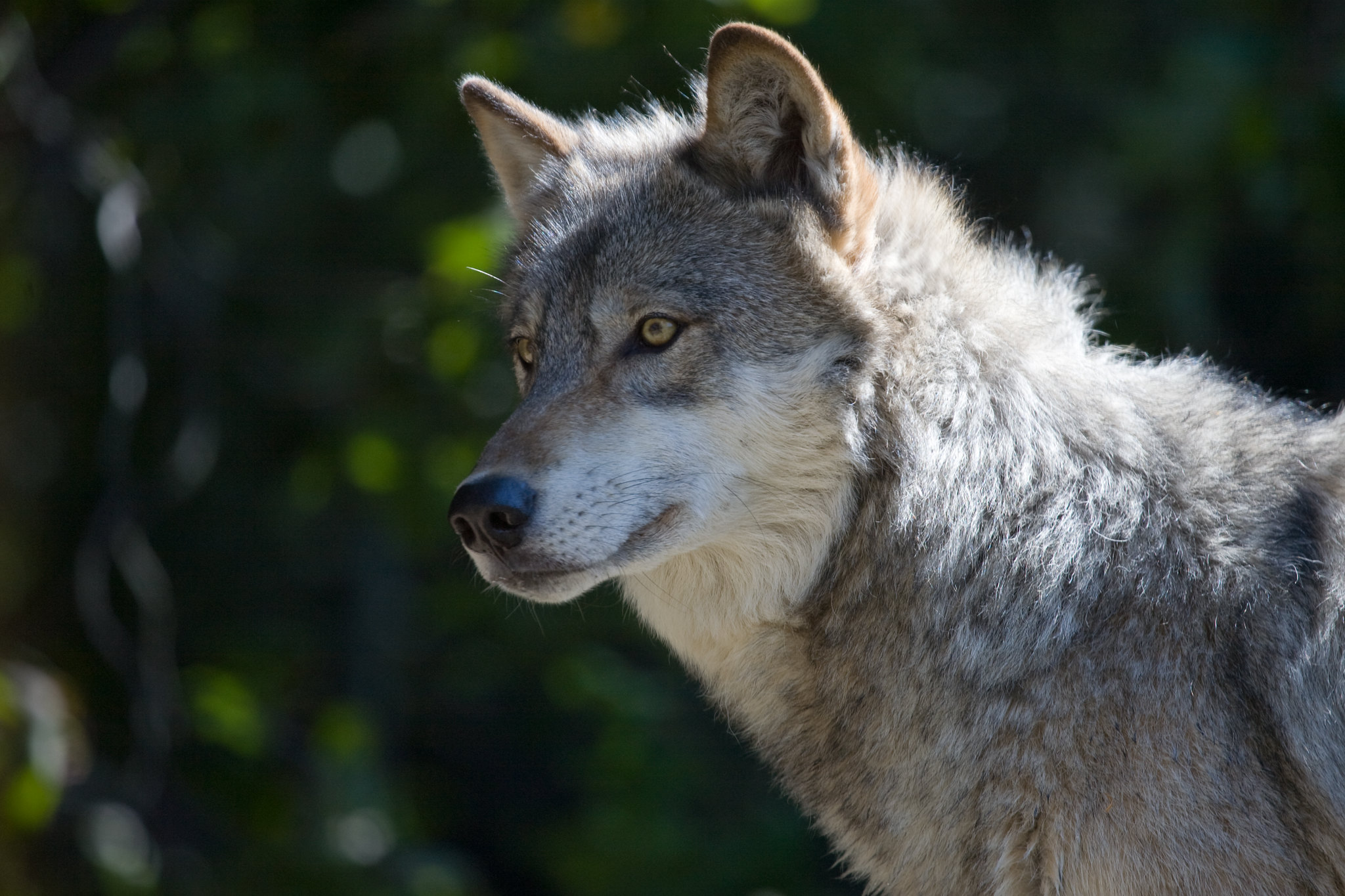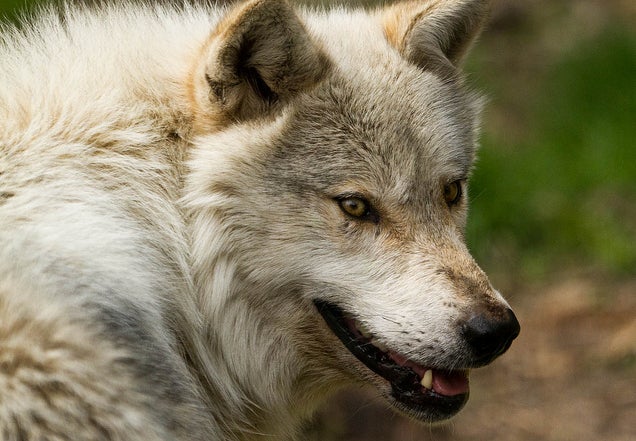Six Ojibwe tribes in Wisconsin are suing the state in federal court to stop the fall wolf hunt, arguing their treaty rights are being violated.
The Lac du Flambeau Band of Lake Superior Chippewa, Red Cliff Band of Lake Superior Chippewa, Bad River Band of Lake Superior Chippewa, Lac Courtes Oreilles Band of Lake Superior Chippewa, St. Croix Chippewa Indians and Mole Lake Sokaogon Chippewa tribes filed the lawsuit Tuesday in U.S. District Court in the Western District of Wisconsin against Wisconsin Department of Natural Resources Secretary Preston Cole and the Natural Resources Board.
The tribes say their rights under the 1837 and 1842 treaties with the United States government are being violated by actions taken regarding the upcoming Nov. 6 hunt.
Stay informed on the latest news
Sign up for WPR’s email newsletter.
“First in setting the quota for the upcoming wolf hunt, Defendants purposefully and knowingly discriminated against the Ojibwe Tribes by acting to nullify their share. Second, the Defendants failed to use sound biological principles in establishing the quota for the upcoming hunt,” the complaint reads.
Tribes are asking a federal judge to rule that the Natural Resources Board violated their rights when setting the harvest quota and bar the state from a holding a hunt this fall. The six tribes say the state has failed to put “adequate safeguards” in place to protect tribes’ share of the wolf harvest quota, pointing to the February wolf hunt. In February, hunters blew past their 119-wolf quota, killing 218 wolves in less than three days.
John Johnson Sr., president of the Lac du Flambeau tribe, told WPR on Monday prior to the filing that tribes are going to stand together and fight to uphold their treaty rights.
“I would like to see the state working with the tribes, allowing us to take our fair share,” said Johnson.
Tribes are entitled to half the share of all natural resources off-reservation in territory ceded to the U.S. government under federal treaties. In August, the Natural Resources Board voted 5 to 2 to set a quota of 300 wolves for the fall hunt — more than double the quota recommended by the DNR.
At the Aug. 11 meeting, the board’s vice chair, Greg Kazmierski, proposed an overall quota of 504 wolves, saying that would allow hunters to harvest roughly 300 wolves after splitting the quota with tribes. Cole accused him of trying to manipulate the quota and set it higher, knowing tribes can claim up to half the amount. Kazmierski fired back, saying the agency’s quota recommendation was manipulated when it came before the board.
DNR staff urged a conservative harvest of 130 wolves due to uncertainty over the population’s response to the February wolf hunt.
Tribes consider the wolf a brother and seek to use their share of the wolf harvest quota to protect the animal.
“The legends and stories tell us as brothers we walk hand in hand together. What happens to the Ma’iingan (wolf) happens to humanity,” said Marvin DeFoe in a statement, Red Cliff tribal elder and member of the Voigt Intertribal Task Force with the Great Lakes Indian Fish and Wildlife Commission.
Tim Preso, an attorney for Earthjustice, said they’re filing the lawsuit on behalf of tribes who don’t intend to see a repeat of February’s wolf hunt.
“The February hunt resulted in an overkill of wolves by non-tribal hunters that consumed the entire tribal share of the wolf quota under the tribes’ treaties and more,” said Preso, managing attorney of the biodiversity defense program for Earthjustice. “This time around, the state has, through the Natural Resources Board, established a quota that was explicitly calculated by some members of the Natural Resources Board to take the tribal portion of the quota that the Department of Natural Resources had proposed.”
A DNR spokesperson said the agency is reviewing the lawsuit and declined to comment further. Natural Resources Board Chair Fred Prehn said he believes the board is following the law, saying the process used to set the wolf harvest quota is the same used for any other species.
“This board is going to follow law. I’ve been saying this for many, many years. We follow statute and regulation, and we believe we’ve done that,” said Prehn. “And, if the judge rules differently, then we’ll have to digest the response from the judge and then meet and deliberate as a board.”
Prehn said the board needs to follow Wisconsin’s existing wolf management plan in setting the wolf harvest quota. The plan, which was first written in 1999 and last updated in 2007, outlines a management goal of 350 wolves for Wisconsin. The DNR is currently in the process of updating the state’s wolf management plan.
“This board is following the management plan in managing the species,” said Prehn. “And even with that in consideration, the quota that this board set still wasn’t anywhere close to trying to reach the management plan objective.”
The DNR has said the goal of 350 wolves outlined in the plan was intended as a trigger for management or harvest — not a population goal. Critics have said the plan is vastly outdated and not based on the best available science.
Wisconsin tribes are among groups representing nearly 200 tribes across the country who are demanding the Biden administration provide emergency protections for wolves. They sent a letter to Interior Secretary Deb Haaland last week calling for emergency protections, arguing states have enacted anti-wolf policies that threaten to decimate wolf populations.
Last week, the U.S. Fish and Wildlife Service said the agency may restore protections for gray wolves out west due to aggressive wolf hunting policies that have been enacted in states like Idaho and Montana.
The federal lawsuit is the latest challenge to Wisconsin’s wolf hunt. Earlier this month, animal protection and wildlife advocacy groups sued to halt the fall wolf hunt in state court, saying the law that mandates a hunt is unconstitutional.
Hunters and farmers have argued there are too many wolves on the landscape, escalating conflicts between livestock and hounds.
The Trump administration removed the gray wolf from the endangered species list across most of the nation earlier this year. Wildlife and environmental groups immediately sued to restore protections for the animal, but the Biden administration has backed the decision to delist the animal.
The DNR originally planned to hold a single wolf hunt this fall, but Kansas-based Hunter Nation sued in February to force a wolf hunt. A Jefferson County judge ordered the DNR to immediately hold a hunt in February.
One study by University of Wisconsin-Madison researchers found hunters and poachers have killed a third of Wisconsin’s wolf population this year. Conservation groups like Wisconsin’s Green Fire fear the fall hunt could cut the state’s wolf population in half since earlier this year.
The DNR estimates Wisconsin had 1,136 wolves prior to the February hunt. The state’s population has grown from just 25 animals in 1980.
Wisconsin Public Radio, © Copyright 2024, Board of Regents of the University of Wisconsin System and Wisconsin Educational Communications Board.




